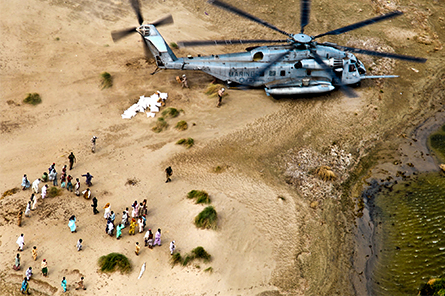Authors: Thomas Wright
Affiliation: Center on the United States and Europe at Brookings Institute
Organization/Publisher: Brookings
Date/Place: March 2, 2021/USA
Type of Literature: Testimony
Word Count: 2086
Link: https://www.brookings.edu/testimonies/global-security-challenges-and-strategy/
Keywords: U.S., China, Global Security, Strategy
Brief:
In his testimony before the Senate Committee on Armed Services, Thomas Wright elaborates on “Global Security Challenges and Strategy” for the United States. He states that the US is confronted with “great power competition and transnational threats” and provides the example of China: a country that has become repressive at home and assertive abroad, and which is interested “to create an international order safe for autocracy” and to interfere “in the politics and society of democracies”. Wright further claims that the COVID-19 pandemic shows best that instead of cooperation, nations chose to compete. He gives the example of how China is withholding serious information and is using its situation to influence international institutions. This attitude has led to a shift in international cooperation – “every nation is fending for itself”. Thomas Wright further claims that the pandemic will have long-term consequences for the US and the international order: While the economy of democracies declined in 2020 (US: -3.5%), China’s economy grew by 2.3%. Thus, Wright foresees that China will become in 2027 the world’s largest economy. Further areas of competition between the US and China are named, such as mitigating climate change and access to raw materials. Wright states that the deterrence strategy of the US in post-war times is not effective anymore, since great power rivalry has intensified. He concludes by naming five recommendations: the pursuit of military modernization of the US, to increase the free world’s resilience to pressure from authoritarian states, to continue to deepen US alliances in the Indo-Pacific, to incentivize European allies to invest in civilian and military capabilities, and to facilitate a national conversation about the type of strategic competition the US wants to engage in.
By: Dilek Yücel, CIGA Senior Research Associate




